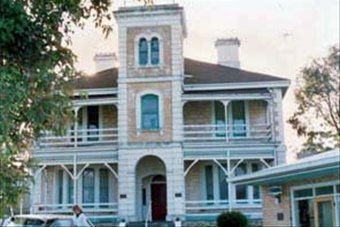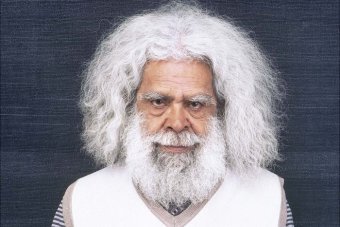Child Sex Abuse Royal Commission: SA Government "Knew of Sexual Abuse" at Salvation Army Boys" Home from Early 1940s
By Candice Marcus
The South Australian Government was aware of allegations of physical and sexual abuse at a Salvation Army-run boys' home from as early as the 1940s, the Royal Commission into Institutional Responses to Child Sexual Abuse has heard. The commission is examining four Salvation Army-run children's homes in South Australia, Victoria and Western Australia. On the first day of the hearing the commission was given graphic accounts of former residents of the Eden Park Boys' Home at Wistow in South Australia of the abuse they had endured there. Current Families SA and Education Department deputy chief executive Etienne Scheepers has given evidence of his review of the Government's historic knowledge of allegations at the home. He said there was documentary evidence to show the state government's Child Welfare and Public Relief Board knew about allegations of physical and sexual abuse at the home in the early 1940s. The commission heard the board made a recommendation in 1941 that the home be abolished as a proclaimed institution, and therefore would no longer be authorised to take wards of the state. It heard the board reviewed the safety of the 41 boys at the home and removed 29 from the home. "The moral tone of the home is such that I feel convinced steps should be taken to remove present wards of the department from that environment," the report read. The commission heard the board had serious concerns about the "immoral conditions" at the home, but the home was not abolished as a proclaimed institution until 1945. Counsel assisting the commission Sophie David asked Mr Scheepers why it took so long for the recommendation to be acted upon. Ms David: On review of the documents is there any explanation why there was a lapse of some four years before it was abolished? Mr Scheepers: I could not see anything from the documents, I guess maybe the Second World War had an impact, I don't know. Ms David: But in terms of the documents themselves? Mr Scheepers: The documents, nothing. Ms David: Do you agree that during that period of time between 1941, when there's a note of recommendation that the home no longer be proclaimed an institution and receive state wards, it continued to receive state wards between 1941 and 1945? Mr Scheepers: According to the records, that's my understanding, yes. Ms David: Do you agree that those state wards would have been at risk of further abuse during that period of time? Mr Scheepers: Yes. Bed-wetters forced to wear wet underpants on head A former resident of a Salvation Army-run children's home in Western Australia described the abuse endured at the Hollywood Children's Home at Nedlands in the late 1960s and 1970s. The woman, who cannot be identified, said she and other bed-wetters had their faces pushed into the wet sheets and were forced to wear wet underpants on their heads and over their noses. She said a violent staff member punished her by locking her in a boiler room and forcing her into a bin of pig waste. She said she was sexually abused by older boys, who she now believed were themselves sexually abused by staff. The former resident wants charities and church organisations forced to contribute to a national redress scheme and better support for victims' families because of the intergenerational ripple effect caused by abuse. Kathryn Benham from the WA Department for Child Protection said documents revealed the government's child welfare board knew about allegations of physical abuse at Nedlands in the 1950s. It included concerns that a staff member who had allegedly beaten boys was being elevated to manager of the Salvation Army home. Ms Benham said the department only became aware of allegations of sexual abuse at the home in 2006, despite a criminal prosecution against one of the staff members in the '90s. She said the department was never notified about those proceedings. Live-in worker reported 'violent screams' and blood stained sheets The commission heard a live-in domestic worker at the home in Wistow reported concerns about sexual abuse in 1963. The woman reported being disturbed at night by "sudden violent screams" by boys in their dormitories and would find blood stained sheets in the morning. She reported that she raised her concerns with those in charge but they took no notice and she suspected boys were being sexually abused by staff members. The commission heard the state government thought it was appropriate to refer the matter to South Australian Police, which it did in July 1963. It heard police then advised the government that its inquiries were inconclusive and no further action was taken. The commission heard despite knowledge of the allegations there was no documented government inspection of the home for several years when it was no longer a proclaimed institution. The home was closed in 1982. Actor bears physical scars from Box Hill Boys Home Jack Charles 2011 by Rod McNicol.
A Hollywood actor and former resident of Victoria's Box Hill Boys Home has urged others to tell their stories. Jack Charles said acting and the theatre had been his salvation but he still suffered sleepless nights from trauma he experienced and had physical scars. He said he hoped more people would step forward and share their experience. "The only way you can get a sense of healing from the misery of your past of being sexually abused is by allowing yourself to go through a process of counselling, an order you can put forth in a setting like this," he said.
|
.
Any original material on these pages is copyright © BishopAccountability.org 2004. Reproduce freely with attribution.

